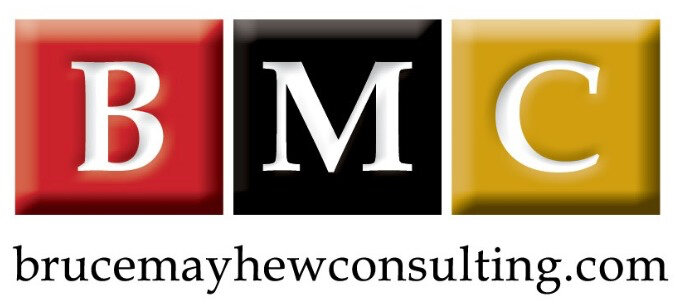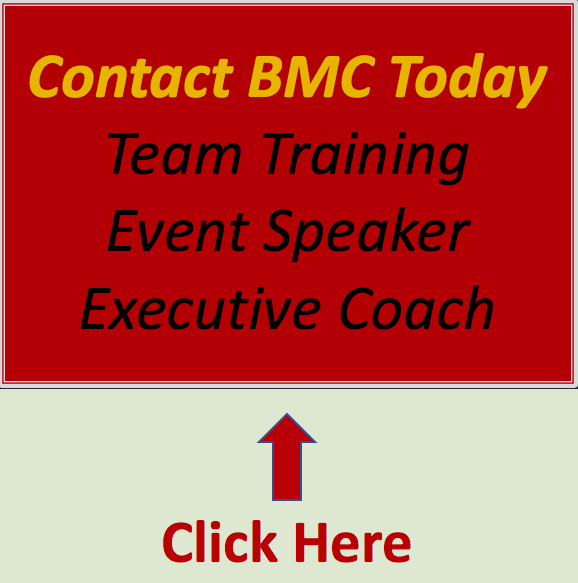What To Expect When Using An Executive Coach
/Knowing what you should expect when using an executive coach and how to choose the right coach to work with is really important to your success.
I offer you my approach to coaching which includes the agreement I strive to reach ahead of time with the people I work with. At the end of this post I also offer some coaching interview questions I try to answer when I fist speak with a potential candidate - whether they ask them or not.
Step 1. Find the coach with the right background:
Finding the right executive coach is like finding the right car. There are many makes and models out there with four wheels (and motorcycles have two and three wheels), so you really have to know what fits your style and goals before you go shopping.
Working with the right coach can help you solve your most pressing leadership challenges – whatever they may be. But anyone can call themselves a coach. There are many aspects to consider when looking for an executive coach. Some people have been trained and have credentials while some do not. Some have extensive experience (as a coach, a strategy builder, and/or a leader through change) while some do not. And now a days many coaches have psychology backgrounds, experience working through stress and/or evaluating psychometric evaluations, all of which may come in handy.
Also, there is lots of previous history you may want (or not want) in your coach that will give them a niche and therefore make them more… or less relevant. For example, I am currently helping an organization find a coach for an ED of a Not-For-Profit. We are realizing that while some experience with Not-For-Profits will likely be good, an executive coach with fundraising experience may actually be a disadvantage because there are specific areas, we want the coach and ED to focus on – and fundraising isn’t one of them.
Once you have a short-list of high-potential coaching candidates that your ‘boss / bosses’ agree can address your needs (your boss / bosses have to be part of the coaching goal definition), now is the time for you - the person being coached to interview each and find the right fit.
Step 2. Manage your expectations:
Coaching means challenging and changing the way you think about some things and the way you approach some situations / people. Coaching is all about changing behaviours – your behaviours, and in some cases those behaviours may have helped you get to where you are today and/or kept you safe. Coaching always means unlearning some of those behaviours and learning new ones. Learning, reflecting and changing is not easy; but it is worthwhile.
Coaching will also help you see some things are in your direct control and some things are outside of your control. Coaching will provide resources and suggestions you can learn from and use to approach challenges and find solutions. Coaching can also help you change a mindset that every leader has to be all knowing and in full control – and instead that being a leader sometimes might mean not getting your way but instead being OK realizing you have to find another path… one in which you may also have to empower and support others.
Other times, working with a coach means having a safe place to discuss the problem with someone who is so knowledgeable from a business perspective. Often, the right coach can instead of giving you answers, ask you the right questions and help you find an appropriate solution.
Step 3. Find the right style:
Just because you find the coach you like, the coach may not want to work with the client (or perhaps the leadership team). Any great coach is going to make sure you are ready, willing and able. Coaching means change – and if you are stuck in your current paradigm and only want someone to support and maybe even reinforce your way of thinking, I am sure you will find that person. Frankly, it sounds like an easy paycheck. But great coaches are interested in change – moving the needle, helping people stretch and feel uncomfortable and most importantly… grow.
All that said, I’m not sure I can describe style in much detail except to say most coaches are teachers who support their training with coaching. Teaching may include reading, videos and even attending conferences. Teaching may also be done during the coaching session and with time allocated for discussion of the client is interpreting the information and how it may be used by them. Coaching can continue in following weeks – building upon the clients’ experience and often feelings. For the coaching to be effective, fit and style are important since the client will sometimes have to share information and feelings that are personal.
Step 4. Set coaching up for success:
Before a final decision is made, allgreat coaches, no matter what their style will establish clear goals in advance between themselves, the coaching client and the leader/leadership team who govern’ the client (like a board of directors). Everyone needs to clearly understand the goals are realistic and something that they can – and want to work on. Once that is done, success must also include being clear on:
Coach and client meet between weekly and monthly.
What happens if one or both begin letting meetings slip?
Everyone to agree in advance that progress / growth should be measured every four to six meetings and be discussed with the coach, client and leader/leadership team. A wrap-up session is also important in order to review and reflect on progress and possible next steps.
Progress / growth discussions and key items worked on are evaluated and shared – not personal experiences / information.
How will goals be measured – what metrics will everyone use, because they should all be in alignment. A 360-degree assessment is a good / common baseline.
Results should be able to be experienced, seen and measured quickly… even after the first meeting.
Coaches who are somewhat different from their client are often better. Good coaches know how to build relationships of trust and respect. Being different (but still relatable), means the coach is able to offer truly different ideas — the kinds of ideas the client may not be able to see for themselves or have brought to their attention by their current support network.
At every meeting cover two of the following three things:
1. Executive Development & Leadership Growth:
Awareness and discussion of gap
Challenges that arise from gap
Opportunity / Benefits from growth
Identify and discussion of weaknesses
How to minimize weaknesses (find other solutions)
How to build on strengths
2. Discuss and problem solve a tactical challenge you are facing:
Evolving from being a boss to being a Leader
Evolving from being a manager to being a Leader
A difficult conversation
Strategic a business decision
How to support you team to live the values of the organization in everything they do
Resistance to change
HR: Does not demonstrate Respect, Trust, Performance and a non-Passive Aggressive Employee Nature (others and/or self) and/or behaviour out of step with organization values, procedures or governance
3. Future Vision:
Strategic Vision of the organization and or a department
Change Management
Where you see yourself in the future
How you see the world
Interview Questions for Selecting A Coach
Whether you are the client or leader/leadership team, these are sample questions you may want to ask the coach as you are doing your assessment. These questions will help round-out and give some structure to your conversation and help give you some concrete answers to why you think you could or could not work with a specific coach. Going on just ‘gut-feeling’ alone will likely not satisfy the client being coached – and especially the leader / leadership team since they will have to justify the time and expense of the coaching processes.
“Why did you become a coach?”
“What is your coaching specialty?”
“What makes you happy / brings you joy?”
“How will I (or my employee) get the most value out of working with you?”
“Have you ever had to fire a client?”
“What happened?” (without names)
“Please share an example where a client had great success?”
“What happened?” (without names)
“How will I (or my employee) get the most value out of working with you?”
“What are the most important traits / behaviours of a great leader?”
“What is your background (professionally or otherwise) that is relevant to you being a coach?
“Your coaching credentials are…?”
About Bruce and Bruce Mayhew Consulting.
Bruce is Corporate Trainer and Executive Coach.
As a Corporate Trainer Bruce Mayhew (of BMC) specialize in customized Time Management Training, Email Etiquette Training, Leadership & New Leadership Development, Generational Differences and other soft skills training solutions in Toronto and across Canada. Bruce is also an Executive Coach to a few select clients.
BMC helps your greatest assets think productive and be productive.
Bruce is an experienced motivational speaker in Toronto and has inspired audiences across Canada and within the USA and the UK. Bruce works hard to always make sure your training event, conference, retreat, or annual general meeting is a success.



